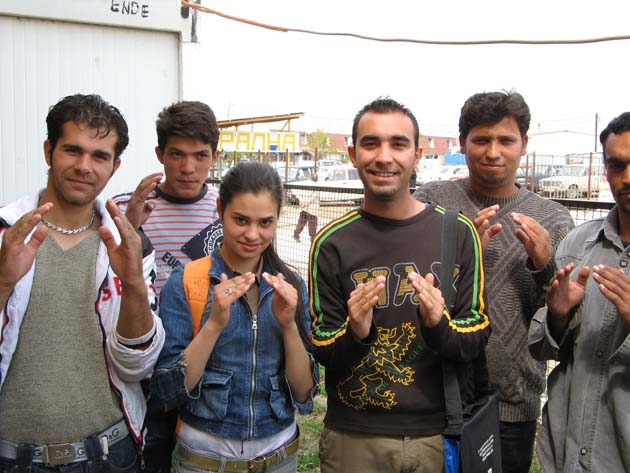Who Is Eligible for Asylum or Refugee Status

Asylum and refugee status are special legal protections available to people who have left their home country for their own safety and are afraid to return.
What's the difference between the asylum and refugee status under U.S. immigration laws — that is, who should seek asylum status, and who should seek refugee status? It's simply a matter of where you are when you apply. People outside of the United States must apply for refugee status. People who have already made it to the United States border or the interior (perhaps by using a visa or by entering illegally) can apply for asylum status.
Once granted, both statuses allow you to stay in the United States indefinitely. Asylees and refugees are given permission to work and are allowed to apply for a green card (within one year of either entering the United States as a refugee or being approved for asylum).
But not everyone qualifies for asylum or refugee status. You must meet some strict requirements, as described in this article. In particular, you must show two things:
- You are unable or unwilling to return to your home country because you have been persecuted there in the past — or have a well-founded fear that you will be persecuted if you go back.
- The reason you have been (or will be) persecuted is connected to one of five things: your race, religion, nationality, membership in a particular social group, or your political opinion.
Let's look more closely at what these requirements mean.
What Is Persecution?
Persecution means to harass, punish, injure, oppress, or otherwise cause someone to suffer physical or psychological harm.
U.S. immigration law does not list specific examples of the kinds of persecution that would qualify someone for asylum or refugee status. However, from the law that has been developed through court cases, we know that it can include such acts as threats, violence, torture, inappropriate imprisonment, or denial of basic human rights or freedoms.
Historically, the need for asylum or refugee status has been recognized in situations where a foreign government:
- imprisons and tortures political dissidents
- fires on protesters
- commits genocide against a certain race, or
- makes sure that members of a certain religion are left out of the political process.
Even if the foreign government stands by while someone else commits acts of persecution — for example, if the authorities are unwilling or unable to exercise control while members of a vigilante squad gang up on gays and lesbians or while members of a guerilla group threaten or kidnap people who won't voluntarily join them — this too can qualify as persecution that would support asylum or refugee status.
There is one type of persecution that is actually listed in the law: Being forced to undergo (or the fear of being forced to undergo) a program of "coercive population control." This specific protection is aimed at victims of the kind of forced abortion and sterilization that takes place in mainland China.
Just remember that the persecution must be connected to one of five grounds — race, religion, nationality, membership in a social group, or political opinion — that are discussed in more detail below. For example, violence directed against gays and lesbians is recognized as persecution connected to membership in a social group. But violence against an individual who happens to have angered a local criminal does not have the necessary connection to one of the five grounds, so a victim of that kind of persecution wouldn't be eligible for asylum or refugee status from the U.S. government.
In recent years, the U.S. government has recognized persecution based on gender (usually based on the "particular social group" category). This has allowed some women to gain asylum based on having undergone (or fearing they'll be forced to undergo) cultural practices such as female genital cutting, forced marriage, and domestic violence.
What Do the Five Grounds for Persecution Mean?
As mentioned above, the U.S. government won't grant asylum or refugee status to a person unless they are suffering (or fearing) persecution that's based on one of five grounds. The first three grounds — race, religion, and nationality — are fairly self explanatory. Let's look at the remaining two grounds — political opinion and membership in a particular social group — since they aren't always as clear.
Political opinion. Persecution of this kind means that you hold opinions that the authorities don't tolerate, most likely opinions that are critical of their policies or methods. Of course, you would need to show that the authorities know about your opinions — otherwise, they'd have no reason to persecute you.
You can also qualify for asylum or refugee status based on political opinion if the authorities mistakenly assume you hold certain opinions, perhaps based on some other personal characteristic like your religion or family group. (This is called "imputed political opinion.") For example, people have proven persecution for political opinion based on having taken part in protests or student demonstrations, been active in labor unions, advocated independence for a particular ethnic group, or joined an opposition political party.
Membership in a particular social group. This category is the most difficult of the five to define, and is the subject of many legal arguments. A social group is sometimes said to mean an identifiable group of people whose government views it as a threat. Or it is described as a group sharing a common characteristic that is so fundamental to their individual identities that the members cannot — or should not be expected to — change it.
Examples of particular social groups whose members have been accepted as asylees or refugees by the U.S. government include tribes or ethnic groups, social classes (such as educated elite), family members of dissidents, occupational groups, homosexuals, members or former members of the police or military (who may be targeted for assassination), and, in some cases, women.










